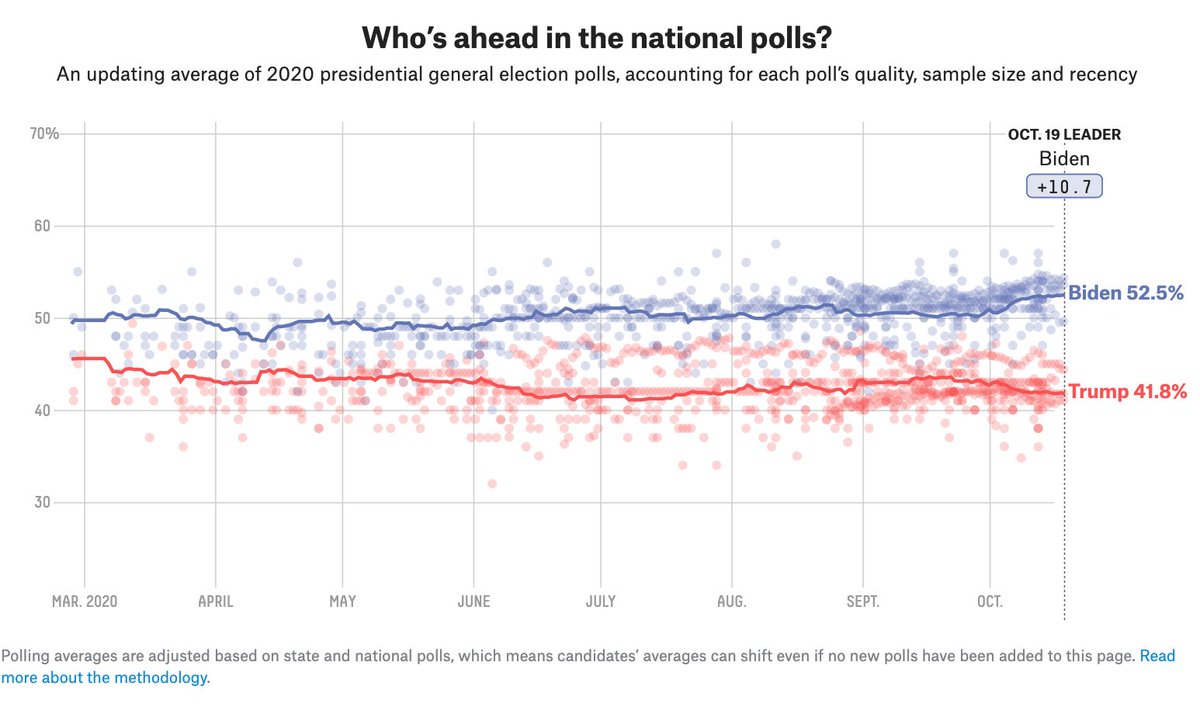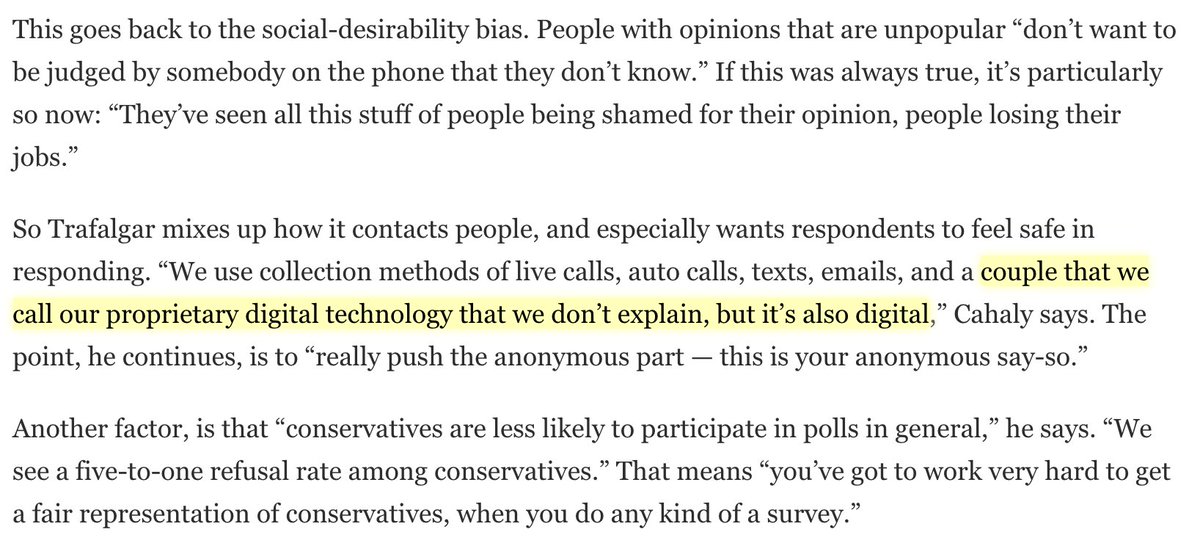The polls have been in something of a holding pattern for the past few days, with two distinguishing features.
First, Biden& #39;s lead in national polls is very steady. It was 10.4 points a week ago and it& #39;s 10.7 points now.
https://projects.fivethirtyeight.com/polls/president-general/national/">https://projects.fivethirtyeight.com/polls/pre...
First, Biden& #39;s lead in national polls is very steady. It was 10.4 points a week ago and it& #39;s 10.7 points now.
https://projects.fivethirtyeight.com/polls/president-general/national/">https://projects.fivethirtyeight.com/polls/pre...
You really have to squint/cherry-pick to see a Trump comeback in the national polls. The IBD/TIPP tracking poll has bounced around a bit in a vaguely pro-Trump direction, I guess. But the other two tracking polls (USC and SurveyMonkey) show a steady/increasing Biden lead.
There& #39;s also a lot of non-tracking poll national data, and it& #39;s just become very routine to see double-digit leads for Biden, especially in the higher-quality polls.
The other feature: the state polls *aren& #39;t* as strong for Biden as the national polls, although there haven& #39;t been that many high-quality and/or live-caller state polls lately.
Online and IVR state polls tend not to show that much change since the debate. Maybe they imply that Biden is +8 nationally or so.
Some of the live-caller state polls we do have could be consistent with a larger Biden lead, though, of +10 or thereabouts.
Some of the live-caller state polls we do have could be consistent with a larger Biden lead, though, of +10 or thereabouts.
The non-live state polls are a weird mix. Certainly some of the higher-quality online polls (e.g. YouGov or Ipsos) are worth paying attention to, although some of them (especially YouGov) tend to do a lot of weighting in ways that make them very steady relative to other polls.
There are also a lot of quasi-partisan state polls in the form of, say, Trafalgar or InsiderAdvantage on the R-leaning side, or Civiqs and PPP on the D-leaning side. Some of their polls officially get classified as partisan by 538 and some do not, depending on who the sponsor is.
I don& #39;t want to paint all of these firms with the same brush. Civiqs is doing good work, I think. But I have to say... with *some* of these firms, it feels like they& #39;re very self-conscious about what their numbers say relative to 538/RCP averages and I don& #39;t love that.
This interview with Trafalgar Group really worried me, for instance. These are not conventional polling methods and it sounds like they provide a lot of room for subjectivity or frankly confirmation bias in how one constructs a voter universe.
https://www.nationalreview.com/2020/10/the-pollster-who-thinks-trump-is-ahead/">https://www.nationalreview.com/2020/10/t...
https://www.nationalreview.com/2020/10/the-pollster-who-thinks-trump-is-ahead/">https://www.nationalreview.com/2020/10/t...
Also worth revisiting the old @Nate_Cohn critique of PPP. Not because PPP is necessarily still up to this, but because it shows how a pollster can be collecting real data but applying dubious assumptions to it rather than letting the data speak for itself. https://newrepublic.com/article/114682/ppp-polling-methodology-opaque-flawed">https://newrepublic.com/article/1...

 Read on Twitter
Read on Twitter



